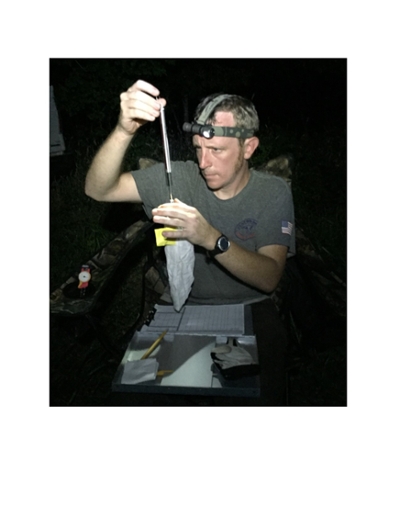Zach Cravens
Main Content
Zach Cravens
Advisor: Dr. Justin Boyles
Research Interest:
Insectivorous bats are voracious predators of numerous insect taxa, including beetles, mosquitoes, and moths. As such, they provide ecosystem services, in the form of pest suppression, worth billions of dollars to forestry and agricultural sectors. Interest is quickly growing in further understanding the dynamics of this system. Of particular interest is the predator-prey dynamics between bats and eared moths, a group of insects that includes economically relevant crop pests such as the corn earworm (Helicoverpa zea) and the gypsy moth (Lymantria dispar). These moths possess ears tuned to echolocation frequencies produced by bats, but these highly evolved defensive mechanisms appear to break down in the presence of artificial light. As a result, generalist bats, such as the eastern red bat (Lasiurus borealis), may be able to access an abundant, nutrient-rich food source that had previously been evasive.
The standard methodology for fecal dietary analysis of insectivorous bats is limited to the ordinal level. However, next generation DNA sequencing and DNA barcoding may provide a complete list of the insects consumed at the species level. My research will use this molecular approach to examine diet of forest bats in presence and absence of artificial light in natural settings. Species-level identification of bat diets will provide further insight into the predator-prey dynamics between bats and moths. Moreover, the degree to which consumption of moths increases in presence of artificial light may strengthen the case for the economic importance of bats.




